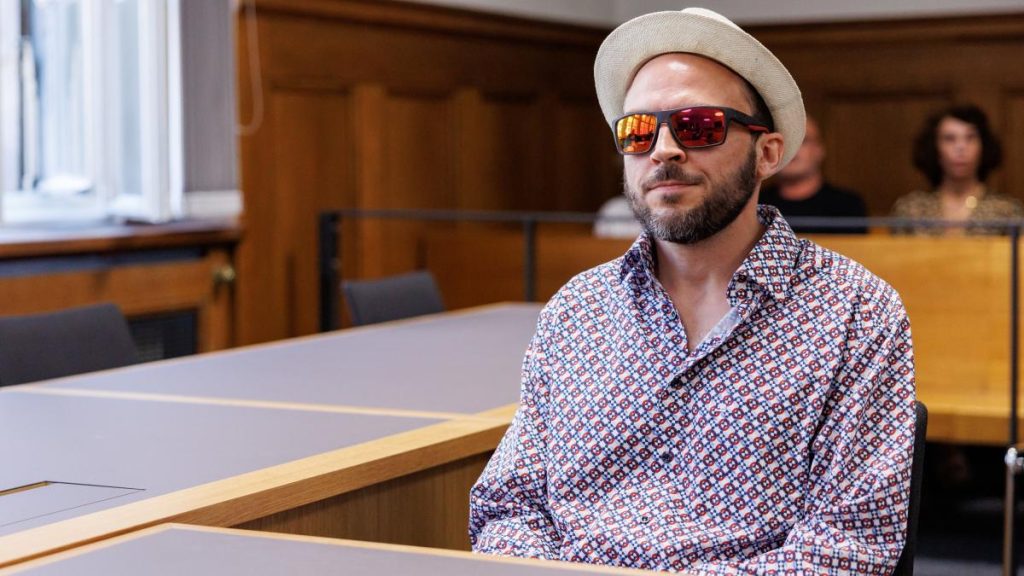A Bavarian artist named Fabian Zolar, known by his artist name, has been acquitted by the Bavarian Supreme Court after being convicted in two instances for a graffiti artwork depicting the state’s Minister-President Markus Söder in Nazi symbolism. The court ruled that Zolar could invoke his freedom of artistic expression, deeming the graffiti as art according to the standards set by the Federal Constitutional Court. The controversial artwork featured Söder’s likeness combined with a skull on one side of a uniformed figure, along with two smaller images of individuals in police uniforms using force.
Zolar defended his graffiti as a statement against police violence, claiming to have been a victim of such violence himself during a previous encounter with law enforcement. The Bavarian Supreme Court acknowledged that elements of the image could be interpreted as resembling a Nazi SS uniform, but found that there were no clearly unconstitutional symbols present. While the skull half of the uniformed figure bore some resemblance to the SS skull emblem, the court noted significant differences that precluded a direct violation of the law prohibiting the use of symbols of unconstitutional organizations.
The court emphasized that the mere appearance of an unconstitutional symbol in an artwork does not necessarily constitute a criminal offense, and in this case, there was no evidence of defamation against Söder. The judges affirmed that artists have the right to express themselves politically, provocatively, or polemically through their work, as art and freedom of speech are not mutually exclusive. Initially, Zolar had been sentenced to a fine of 90 daily rates of 30 euros each, totaling 2700 euros, by the Nuremberg District Court and the Nuremberg-Fürth Regional Court.
The controversy surrounding Zolar’s artwork depicting Söder in a SS-like uniform has sparked discussions about the boundaries of artistic expression, particularly in relation to political figures and sensitive historical symbols. The ruling by the Bavarian Supreme Court in favor of Zolar’s freedom of artistic expression sets a precedent for future cases involving similar themes, highlighting the importance of distinguishing between provocative artworks and unlawful representations. The case also raises questions about the role of art in addressing social and political issues, as well as the responsibilities and freedoms of artists in expressing their views.
As the legal battle over the graffiti artwork comes to a close with Zolar’s acquittal, the artist’s victory in asserting his right to artistic freedom showcases the significance of protecting creative expression and challenging societal norms through art. Despite the controversy and debate surrounding the artwork, Zolar’s case serves as a reminder of the power of art to provoke thought, raise awareness, and engage in critical dialogue about complex and challenging topics. Moving forward, the court’s decision is likely to influence future debates on the intersection of art, politics, and freedom of expression within the cultural landscape of Bavaria and beyond.















